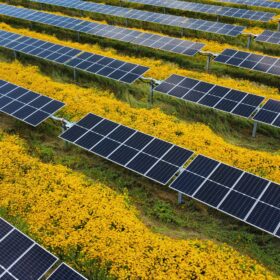The U.S. International Trade Commission’s (ITC) trade action recommendations on October 31 were met with a collective sigh of relief from many sections of the U.S. solar industry. These recommendations were much less severe than the measures asked for by SolarWorld and Suniva, leading many to believe that the implementation of trade remedies might not be as bad as they feared.
However, the final decision on what kind and level of trade action to implement lies with U.S. President Donald Trump, whose administration has taken several actions to attempt to keep a zombie coal industry around.
As such, the latest analysis on the potential impact of trade action by cloud-based software company Mercatus looks not at the recommendations by the USITC, but instead on the potential effects of the trade remedy proposals by Suniva and SolarWorld, in terms of impacts on profitability of utility-scale solar projects in the United States.
Mercatus finds that these proposals would result in a 214 basis point fall in the After-Tax Internal Rate of Return (AT-IRR) for utility-scale solar projects in the United States. This in turn would cause the United States to fall from ninth to nineteenth place in Mercatus’ ranking of the most attractive global solar markets by project IRR, which it says would cause investors to flee to more profitable markets.
“One CEO of a major power producer told me that a rapid 10% drop in profits could kill his company,” states Mercatus CEO Haresh Patel. “Think of how a tariff that represents a 214 basis point decrease in AT-IRR might impact investor sentiment.”
This content is protected by copyright and may not be reused. If you want to cooperate with us and would like to reuse some of our content, please contact: editors@pv-magazine.com.









By submitting this form you agree to pv magazine using your data for the purposes of publishing your comment.
Your personal data will only be disclosed or otherwise transmitted to third parties for the purposes of spam filtering or if this is necessary for technical maintenance of the website. Any other transfer to third parties will not take place unless this is justified on the basis of applicable data protection regulations or if pv magazine is legally obliged to do so.
You may revoke this consent at any time with effect for the future, in which case your personal data will be deleted immediately. Otherwise, your data will be deleted if pv magazine has processed your request or the purpose of data storage is fulfilled.
Further information on data privacy can be found in our Data Protection Policy.